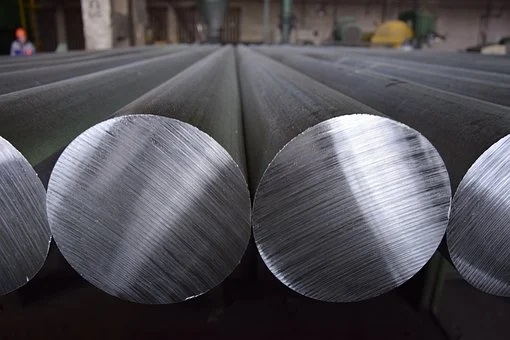Introduction
The Metallurgy Department was initially a section under the Mining Department of the former Zambia Institute of Technology (ZIT) which was founded in 1970, running both Advanced Certificate and Diploma programmes until 1989,when the Advanced Certificate programs were phased out to pave way for the introduction of degree programmes, namely the Bachelor of Engineering in Metallurgical Engineering and the Minerals Engineering introduced in 2001and 2014 respectively to run concurrently with existing 3yr diploma metallurgy programme.
The degree is a 5yr training programme. In the first three years of training, from first year to third year, student study common courses to provide them with a broad foundation in both Metallurgical Engineering (Physical Metallurgy) and Minerals Engineering fields in order to position students to specialise in either Metallurgical Engineering or Minerals Engineering in the last two years of the training programme. Student will graduate with either a Bachelor of Engineering in Minerals Engineering or Metallurgical Engineering depending on the area of specialization. This arrangement orients the undergraduate training programme to meet the needs of a wider spectrum of the metallurgical industry by producing a graduate that adapt easily to changing paradigms in the mining and process industry.
The programmes are also offered at the Solwezi Satellite Campus in SolweziProgrammes Offered
Programme Objectives
The overall objective of the training programmes is to produce a graduate with competencies in the science and technology of processing minerals and metals, process design of chemical and metallurgical operations, management of production systems, economic evaluation of engineering processes; and environmental and energy management. These competencies are exploited in research based final year projects usually conducted at some of metallurgical plants in the mining industry as a way equipping students with skills to tackle industrial based engineering challenges.
On the overall, the graduate is expected, among other things to:
(a) Develop the ability to understand the different types of circuit configurations designed as treatment protocols for various metallic ores in producing metal products that can be utilized in adaptive metallurgy to generate engineering products.
(b) Possess systematic, extensive and comparative knowledge in understanding the relationship between material properties of an ore, the chemical environment in which processing of ores is taking place and how these dictate the type of circuit arrangement and unit process devices that make up the circuit configuration.
(c) Have knowledge of various unit operations of extractive metallurgy that reduce ore concentrates to their metallic form and the metallurgical engineering processes for the conversion of metallic products to usable end products
(d) Carry out circuit diagnostic tests and energy efficiency utilization as part of performance evaluation on process units in establishing both technical efficacy and economic viability. This is complimented by a number of statistical tools for predicting and projecting performance
Classification of Metallurgy
Metallurgical Engineering has three distinct branches; namely Mineral Processing, Extractive Metallurgy and Physical Metallurgy.
Mineral Processing
Minerals from metals are extracted are naturally found in the earth’s crust in location called ore deposits. The ores are removed from the earth’s crust using different mining methods after which they undergo a sequence of operations which prepares them for metal extraction. These are called Ore dressing or mineral processing operations. They include such operations as crushing, grinding, screening and mineral separation processes such as flotation, gravity concentration etc.
Extractive Metallurgy
This involve chemical processes that liberate the metal from the minerals contained in the ore. Chemical metallurgy is also charged with refining of metals to a purity that can be used in industry. The various chemical processes involved include Pyrometallurgy (calcining, roasting, smelting, converting, distilling, fire refining), Hydrometallurgy (Leaching, precipitation etc) and Electrometallurgy which involves: electrolysis of aqueous solutions and fused salts as in. Electrowinning and, Electrorefining operations.
Physical Metallurgy
This branch of metallurgy, also referred to as adaptive metallurgy deals with the metals and alloys that have been refined through extractive metallurgical processes. The scope ranges from a study of what the metals are and why they behave as they do, to production of a new or improved product through alloying or heat treatment.
Adaptive metallurgy deals with the nature, structure and physical properties of metals and alloys, as well as their application and adaptation in various engineering fields.
Career opportunities
The privatisation of the mining industry in the early1990’s, paved way for a number of multinational companies to invest in the mining sector. In addition to acquisition of assets of the state owned Zambia Consolidated Copper Mines Ltd by companies like Anglo American Corporation, AVMIN, GENCOR and Quantum Minerals in the early stages of the privatisation process, there has been subsequent greenfield investments in Chibuluma South Ore body in Kalulushi (Metorex), Chambeshi Mine in Chambeshi (Non-Ferrous China Corporation), and Kansanshi Mine, Lumwana Mine and Kalumbila Mine in North-Western province. In all these and similar investments, the business undertaking has been heavily skewed towards the exploitation of ore bodies to produce mineral concentrates and primary metal commodities for export. Graduates from the both the diploma and engineering degree programmes have continued to satisfy human resource requirement for such undertakings and constitutes the bulk of the engineering workforce sustaining the metallurgical operations.
Apart from the mining industry, graduates in metallurgical and minerals engineering are availed excellent job opportunities in non mining sectors such as cement industry, foundries, chemical processing and petrochemical industries.
Metallurgical Services
The department offers metallurgical services in mineral processing (communition, flotation, gravity, magnetic separation and solid-liquid separation), hydrometallurgy ( leaching, Solvent extraction, Ion exchange and electrowinning, Biological leaching of base metal ores and concentrates), pyrometallurgy and materials testing.

